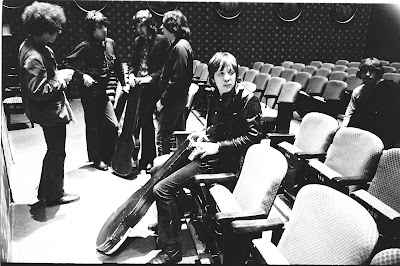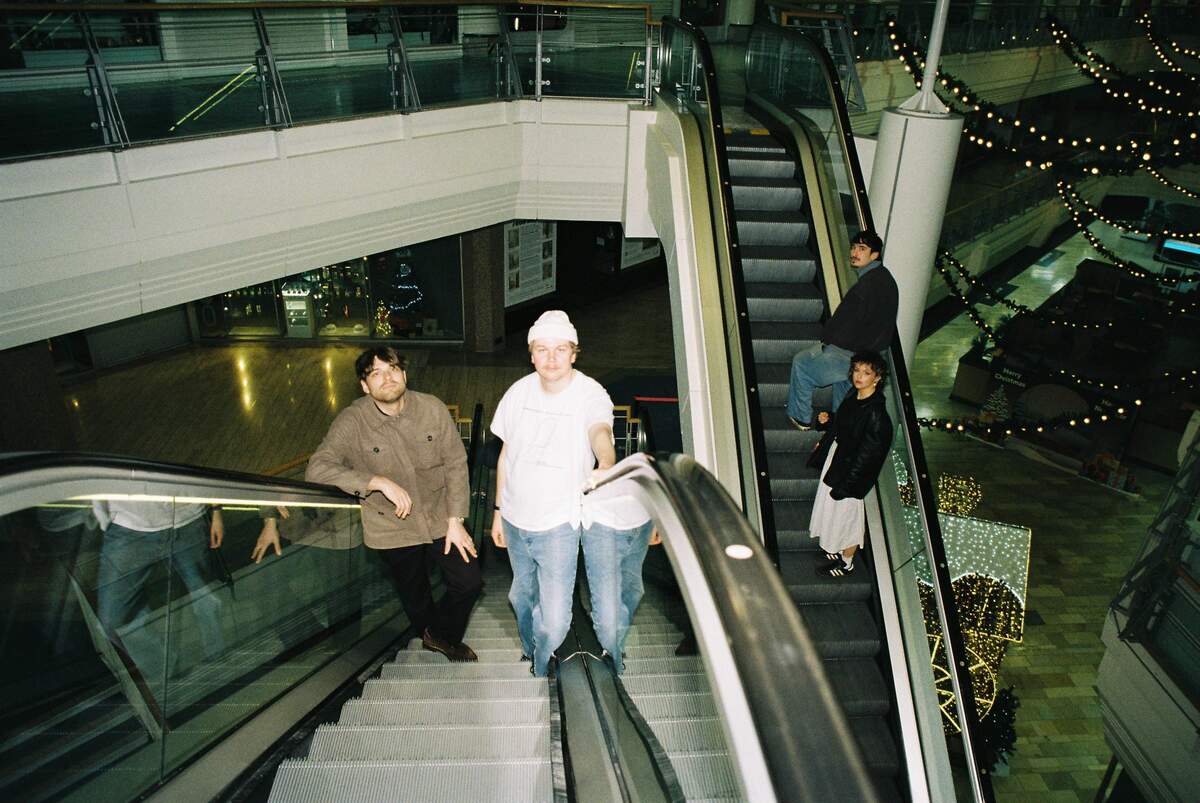Robin Trower Meets Jimi Hendrix by Henry Scott-Irvine
Procol Harum’ s guitarist Robin Trower at
the Constitution Hall in Washington DC USA in 1969. Photograph by William
Hatfield
the Constitution Hall in Washington DC USA in 1969. Photograph by William
Hatfield
Excerpt from Omnibus Press biography
Procol Harum & The Ghosts of A Whiter Shade Of Pale
by Henry Scott-Irvine
On August 28 1970 Procol Harum performed to
over half a million people at the five-day ‘Isle Of Wight Pop Festival’ along
with Tony Joe White, Rory Gallagher’s Taste, Family, Chicago, and a host of
others. This epic festival saw Procol Harum’s guitarist Robin Trower finally
standing on the same stage as his hero Jimi Hendrix, who also starred at this
festival, albeit on a different day.
over half a million people at the five-day ‘Isle Of Wight Pop Festival’ along
with Tony Joe White, Rory Gallagher’s Taste, Family, Chicago, and a host of
others. This epic festival saw Procol Harum’s guitarist Robin Trower finally
standing on the same stage as his hero Jimi Hendrix, who also starred at this
festival, albeit on a different day.
Record Mirror’s Lon Goddard ran a piece
dated September 19 featuring the headline: ‘Procol Smoked Out On Isle’,
describing how “In the bitter chill of the night, with miserable audience
conditions and the fatigue of many listeners, Procol Harum could do no wrong.”
dated September 19 featuring the headline: ‘Procol Smoked Out On Isle’,
describing how “In the bitter chill of the night, with miserable audience
conditions and the fatigue of many listeners, Procol Harum could do no wrong.”
Gary Brooker, “The thing that really bothered me was the great billows
of smoke that kept blowing over from the camp fires directly onto the stage.
Because of the conditions the fast numbers went over much better. The act was more or less planned up until the
rock ‘n’ roll numbers at the end. Those we do if the time is right!”
Despite having been filmed by Murray Lerner
for the duration of their set, none of Procol Harum’s eight songs made it to
the final cut of Lerner’s ‘Isle Of Wight’ documentary Message To Love, which
belatedly appeared in 1997 on Eagle DVD. Procol’s lyric writer Keith Reid
remains perplexed. “I have no idea why our songs were not included. I even went
to see Murray Lerner in New York, and he showed me the footage. I’ll have to
look him up and ask!”
for the duration of their set, none of Procol Harum’s eight songs made it to
the final cut of Lerner’s ‘Isle Of Wight’ documentary Message To Love, which
belatedly appeared in 1997 on Eagle DVD. Procol’s lyric writer Keith Reid
remains perplexed. “I have no idea why our songs were not included. I even went
to see Murray Lerner in New York, and he showed me the footage. I’ll have to
look him up and ask!”
2/-
Procol’s next major festival appearance was
scheduled for September 5 1970 at the massive Love & Peace event held on
the Isle of Fehmarn. The headliner at the event was Jimi Hendrix who played
through heavy rain to a miserable, unsettled crowd. Advance warning of
heavy-handed policing by German biker gangs motivated Procol’s manager Doug
D’Arcy to withdraw both Procol Harum and Ten Years After from the event.
Neither band left their hotel until the gig was over. It was just as well as
there was a near riot and the promoter’s offices were burned to the ground. So
much for the promise of a Festival of ‘Love & Peace’.
scheduled for September 5 1970 at the massive Love & Peace event held on
the Isle of Fehmarn. The headliner at the event was Jimi Hendrix who played
through heavy rain to a miserable, unsettled crowd. Advance warning of
heavy-handed policing by German biker gangs motivated Procol’s manager Doug
D’Arcy to withdraw both Procol Harum and Ten Years After from the event.
Neither band left their hotel until the gig was over. It was just as well as
there was a near riot and the promoter’s offices were burned to the ground. So
much for the promise of a Festival of ‘Love & Peace’.
Ironically the day before the Isle of Fehmarn debacle Procol had played
with Jimi Hendrix at the huge indoor venue The Deutchlandhalle as a part of The
Berlin Super Concert.
Robin Trower: “I remember we played on the
bill directly after him in Berlin. Jimi’s set was really great. We had heard it
whilst standing in the wings. But people were booing and throwing bottles and
cans at him. We came on and I threw the bottles and beer cans back at the
audience. How could they do that to Jimi? Anyway, that day, after all those
gigs throughout all those years, I finally got to stand on the same stage on
the very spot where Jimi had played live. Very soon after that he was dead.
Reallyreally sad!”
bill directly after him in Berlin. Jimi’s set was really great. We had heard it
whilst standing in the wings. But people were booing and throwing bottles and
cans at him. We came on and I threw the bottles and beer cans back at the
audience. How could they do that to Jimi? Anyway, that day, after all those
gigs throughout all those years, I finally got to stand on the same stage on
the very spot where Jimi had played live. Very soon after that he was dead.
Reallyreally sad!”
Gary Brooker had also watched Hendrix from
the wings that night. “Jimi played magnificently and the audience just booed
him. Trower was bloody livid. He was totally enthralled with Hendrix’s playing,
and was ready to punch out 6,000 Germans!”
the wings that night. “Jimi played magnificently and the audience just booed
him. Trower was bloody livid. He was totally enthralled with Hendrix’s playing,
and was ready to punch out 6,000 Germans!”
Robin Trower: “I think it was above their
heads, you know? I mean, I couldn’t take in a lot of what he was doing. And I’m
a musician. So you can imagine what it was like for them. Anyway, I was walking
up and down outside the dressing room after he’d come off stage, and I was sort
of saying, ‘Should I go in?’ Then I burst into his dressing room all of a
sudden and said, ‘I’ve gotta tell you that was the best thing I’ve ever seen,’
which it was. And he said, ‘Uh, thank you, but uh naw.’ And I just went,
‘Whoops, that’s it,’ and walked out again.”
heads, you know? I mean, I couldn’t take in a lot of what he was doing. And I’m
a musician. So you can imagine what it was like for them. Anyway, I was walking
up and down outside the dressing room after he’d come off stage, and I was sort
of saying, ‘Should I go in?’ Then I burst into his dressing room all of a
sudden and said, ‘I’ve gotta tell you that was the best thing I’ve ever seen,’
which it was. And he said, ‘Uh, thank you, but uh naw.’ And I just went,
‘Whoops, that’s it,’ and walked out again.”
3/-
The closing track to Procol’s 1971 album
Broken Barricades ‘Song For A Dreamer’ attracted huge press attention upon the
album’s release. It was designed as a way of paying respect to a recently
departed legend.
Broken Barricades ‘Song For A Dreamer’ attracted huge press attention upon the
album’s release. It was designed as a way of paying respect to a recently
departed legend.
Robin Trower, “We’d done that show in Berlin [September 1970] with Jimi
Hendrix and I think more or less from there, straight away, we went out to tour
in the States. We were in San Francisco when we heard that Hendrix had died.
Keith Reid and I decided we’d do a little tribute to him. I played Keith
something that I wrote on the guitar. He’d already got some words. So ‘Song For
A Dreamer’ just gelled. It just came together really nicely. It turned into a
special track.”
With all the press attention for Procol Harum’s Broken Barricades going
in the direction of Robin Trower the writing was on the wall signifying his
imminent departure from the band mid-way through 1971.
Robin Trower: “I always think about being in Procol Harum as like going
to school and learning what the real thing was all about; playing in America
and making albums. I always felt that it enabled me to go on and do what I
did…”
The impact of Trower’s departure from Procol Harum was mainly felt in
the USA. It hit like a bomb. A & M Records were tremendously worried that
Procol Harum had lost their powerhouse guitar player and this was reflected in
the American music press.
Robin Trower continued under the watchful
gaze of Chrysalis Records’ Doug D’Arcy, firstly forming Jude, a short-lived four-piece consisting of
himself on lead guitar, Glaswegian
singer Frankie Miller (The Stoics) on acoustic guitar along with fellow Glaswegian legend Jimmy Dewar (Stone The Crows) on bass,
and Clive Bunker (Jethro Tull) on drums. Dewar and Trower soon formed a strong
alliance, paving the way the way for the beginning of Trower’s magnificent solo
career. A year later drummer Reggie Isadore joined forces with the pair and
international stardom beckoned!
gaze of Chrysalis Records’ Doug D’Arcy, firstly forming Jude, a short-lived four-piece consisting of
himself on lead guitar, Glaswegian
singer Frankie Miller (The Stoics) on acoustic guitar along with fellow Glaswegian legend Jimmy Dewar (Stone The Crows) on bass,
and Clive Bunker (Jethro Tull) on drums. Dewar and Trower soon formed a strong
alliance, paving the way the way for the beginning of Trower’s magnificent solo
career. A year later drummer Reggie Isadore joined forces with the pair and
international stardom beckoned!
Procol Harum’s Keith Reid, BJ Wilson, Dave
Knights and Gary Brooker chat after a sound check at the Constitution Hall in
Washington DC, USA.
Knights and Gary Brooker chat after a sound check at the Constitution Hall in
Washington DC, USA.
in 1969.
Robin Trower and Matthew Fisher prefer to sit as the others chat about
the upcoming concert. Photograph by William Hatfield
Robin Trower and Matthew Fisher prefer to sit as the others chat about
the upcoming concert. Photograph by William Hatfield
4/-
During the glory days of the Robin Trower
trio, Procol Harum’s ‘Song For A Dreamer’ would be the final number to be
played-out over every concert hall
trio, Procol Harum’s ‘Song For A Dreamer’ would be the final number to be
played-out over every concert hall
P. A. When Trower’s audiences heard the
final notes of that song, they knew that their guitar hero was about to appear
on stage and everyone took to their feet.
final notes of that song, they knew that their guitar hero was about to appear
on stage and everyone took to their feet.
The American and British music press would continually compare Trower to
Hendrix throughout these heady times. Trower’s album sales went into the
American Billboard Top Ten as a result and Trower moved Stateside.
Procol’s drummer [the late] Barrie James
Wilson relaxing in 1971.
Wilson relaxing in 1971.
Photograph by William Hatfield
Henry Scott-Irvine’s Omnibus Press
biography Procol Harum & The Ghosts Of A Whiter Shade Of Pale is out now.
It is available online and in all good book shops throughout Britain.
biography Procol Harum & The Ghosts Of A Whiter Shade Of Pale is out now.
It is available online and in all good book shops throughout Britain.
Array








This gives some insight into the respect real players from this time accorded Jimi. He was a gentle soul and certainly was playing music some did not understand. Robin knew they would "never hear surf music again …" Thanks Henry for taking us back.
jAMES LOWE electric prunes
Jimi was awesome but slightly before my time…however Robin hit me straight away as a teenager and it’s never gone away. He’s still one of my hero’s and always will be ?
Gary Brooker and Robin Trower’s continued insistance that Jimi Hendrix “was booed” and had “people throwing cans and bottles” at him is complete nonsene. There is a very good sounding audience tape of this Berlin Sept. 1970 show that has no booing or anything else ! RIP Jimi !